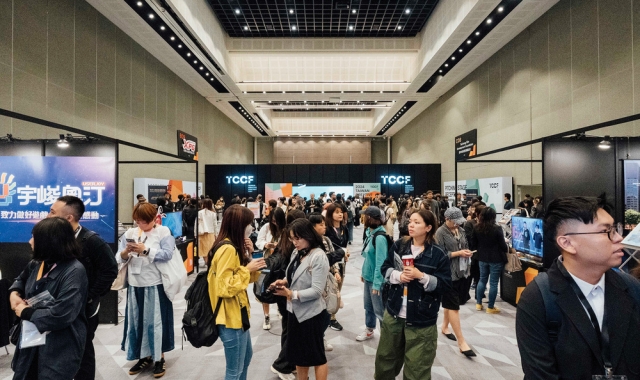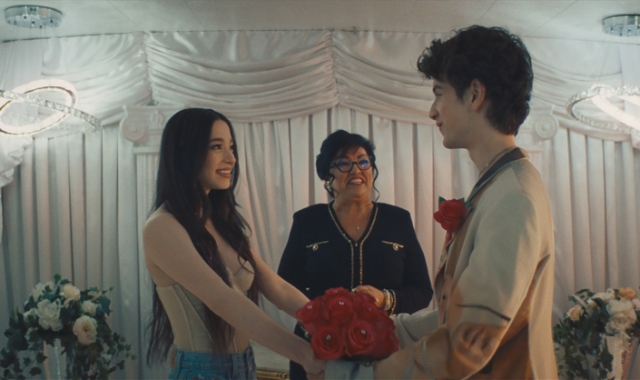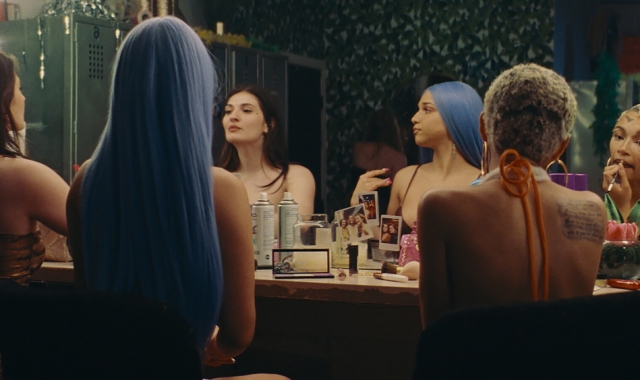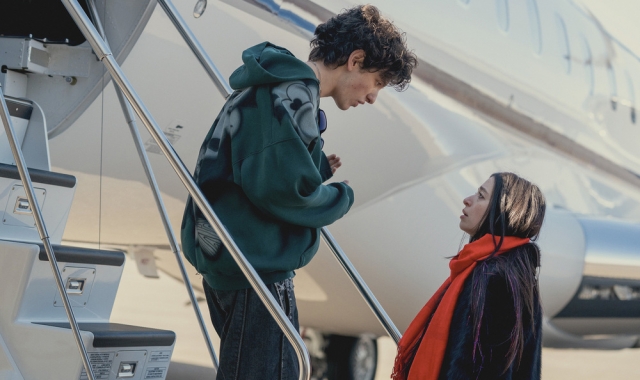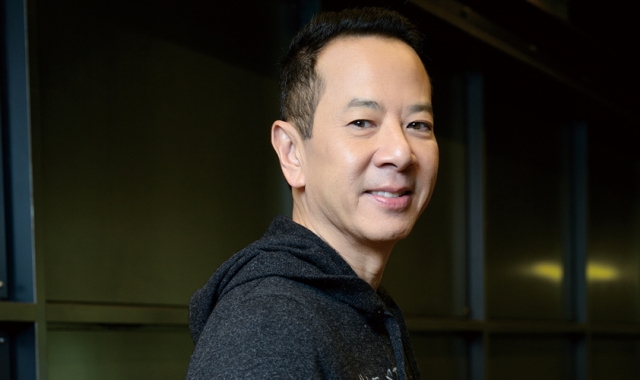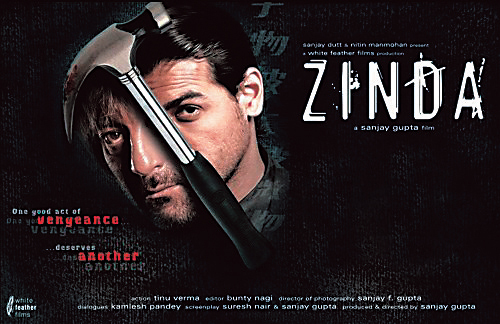
박찬욱 감독이 “복수 3부작” 소개를 위해 지난 11월 그리스의 테살로니키 영화제를 방문했을 때 할리우드가 <올드보이> 영어판 리메이크를 하면 작품을 바꿔놓지 않을까 걱정되느냐는 질문을 받았다. 그러나 박 감독은 “그것이야말로 할리우드로부터 기대하는 바입니다. 완벽하게 내 영화를 변화시키고, 완전히 새롭고 다른 무언가를 창조해내는 것 말입니다”라고 대답했다.
할리우드가 지난 5년간 리메이크 판권을 사들인 약 6편의 한국영화 중 단 한편도 아직 완성하지 못한 사실에 비춰봤을 때 박 감독은 꽤 기다려야 할 것 같다. 한편 인도의 할리우드라 할 수 있는 발리우드는 LA에 있는 상대들이 개발에 집착하는 동안 조용히 전진하여 독일, 태국, 일본과 같은 다른 나라들을 뒤이어 - 비공식적이긴 하나 - 또 한편의 비영어 버전 리메이크를 만들어냈다.
<진다>는 - 우르드어로 “살아 있는”이라는 뜻인데 - 소프트웨어 프로젝트에 참여하러 방콕에 (임신한) 젊은 아내를 데리고 온 비사교적인 한 중년 힌두인의 이야기다. 대낮에 강가의 자기 집 개인 부두에 서 있던 그는 납치되고, 14년 동안 방 안에 감금당하고, 오직 군만두만 공급받아 먹으며, TV에서 무술을 배워 제정신을 유지해나간다.
어느 날 그는 초고층 빌딩의 꼭대기에 있는 상자에서 잠을 깬다. 그리고… 여러분도 나머지는 알고 있는 이야기다. 이 영화는 물론 <올드보이>의 발리우드 스타일 리메이크다. 즉 오리지널에 대한 어떠한 인정도 하지 않고 소재를 인도화하기 위해 한두개의 변화만 더해준 것이다.
발리우드는 비공식적으로 언제든 할리우드 영화를 리메이크한다(종종 꽤 잘 만들기도 하고, 대부분은 더 큰 재미를 주면서 만든다. 그러니까 한류의 전파를 감안했을 때 발리우드가 한국영화에 닿기까지 이렇게 오래 걸렸다는 것이 놀라운 일처럼 보인다).
그렇지만 발리우드는 할리우드와 마찬가지로 자체 사업이다. 타국 문화에 있어선 이국적 매력 이외에 관심이 없으면서 갈 곳 없는 관객한테 맞춰, 이미 시험해봐서 증명되고 대개는 보수적인 궤도를 따라 제작을 진행해오고 있다. 놀랄 일이라면 <진다>가 얼마나 잘 만들어지고 어두운 작품인가 하는 것이다. 발리우드 기준으로 치면, 거의 예술영화다.
감독인 산제이 굽타는 이전부터 외국 영화들에서 ‘영감’을 받아왔다. <칸테>(2002)는 <저수지의 개들>을 총명하게 개정한 판이었고, 그 작품 또한 나름 홍콩 감독 임영동의 <미스터갱(City on Fire)>에서 영감을 받은 것이었다. <진다>는 <올드보이>를 모사한 장면들과 미술연출, 심지어는 같은 대사들로 가득 차 있지만 전체적으로 이 영화는 자신만의 역학과 어두움을 지녔다.
굽타 감독의 단골 주연배우 산제이 두트는 저질 갱스터 역할 전문인데, 여기서 그는 잔혹하고 지친 복수의 기계로 화려한 연기를 보여준다. 그러나 <진다>가 발리우드 기준으로 거의 예술영화가 된 것은 시각적 적막함(모든 색의 포화도가 저하됐고, 영화 전체는 푸른빛으로 물들어 있다), 극단적 비관주의(간주곡이 전혀 없다), 그리고 강렬한 감정적 냉정함 때문이다. 굽타 감독이 근친상간 주제를 빼버리긴 했지만, 인도 관객들에게 그만큼이나 충격적인 것으로 대체했다.
박 감독 대신 이 리메이크에 대해 말할 순 없지만, 그가 이 버전을 즐기리라 생각한다. 이 영화는 ‘완전히 다르지’는 않다. 그렇지만 지능적으로 만들어졌으며 단순한 모방 이상을 만들어낸 작품이다. 감옥 복도에서 주인공이 망치를 들고 싸우는 한 시퀀스만 예를 들어보자. <올드보이>에서 그 장면은 거의 발레처럼 연출된 수평 트레킹숏이다. <진다>에서도 역시 하나의 롱테이크로 가지만, 두트가 연기하는 잔혹하고 세상에 지친 주인공을 정확히 반영한 장면으로, 코너에 몰린 너절하고 격렬한 싸움으로 고안된다. 이제 할리우드, 너네 차례다. 물론 할리우드만의 시간에 맞춰서 되겠지만 말이다.
When Park Chan-wook visited the Thessaloniki Film Festival in Greece last November to present his "vengeance trilogy," he was asked if he was worried about Hollywood making changes to "Old Boy" for the English-language remake. But Park replied: "That's exactly what I'm expecting the people in Hollywood to do: completely change my films, create something entirely new and different."
Park may have quite a wait, as Hollywood has yet to complete ANY of the half-dozen-or-so South Korean films it's bought remake rights to during the past five years. Meanwhile, Hollywood's Indian equivalent, Bollywood, has quietly stolen a march on its development-obsessed Los Angeles cousins, with another non-English-lingo remake, albeit unofficial, of a Korean movie, following others in countries like Germany, Thailand and Japan.
Called "Zinda" - Urdu for "Alive" - it's the story of a socially disagreeable middle-aged Hindu who arrives with his young (and pregnant) wife in Bangkok to work on a software project. In the broad light of day, standing on the private jetty of his riverside home, he's kidnapped and held prisoner in a room for 14 years, fed only on grilled dumplings but keeping a hold on his sanity by learning martial arts from the TV.
One day he wakes up in a box on top of a skyscraper and...but you know the rest. It is, of course, a remake of "Old Boy," Bollywood-style, i.e. without any credit to the original film and with a few extra wrinkles to Indian-ise the subject-matter. Bollywood unofficially remakes Hollywood movies the whole time - often rather well, and generally with a much greater sense of fun - so it may seem a surprise that it's taken so long, given the spread of hallyu, to get round to South Korean pictures.
But like Hollywood, Bollywood is largely an industry unto itself, catering to a captive audience that has little interest in other cultures beyond their exotic appeal and running its production along tried-and-tested, mostly conservative tracks. The real surprise is how good and how dark "Zinda" is: in Bollywood terms, it's practically an art movie.
The director, Sanjay Gupta, has been "inspired" by foreign movies before. His "Kaante" (2002) was a clever reworking of "Reservoir Dogs," which in turn was inspired by Hong Kong director Ringo Lam's "City on Fire." "Zinda" is full of scenes and art direction and even lines of dialogue that replicate "Old Boy," but the movie as a whole has its own dynamic and darkness.
Gupta's regular lead actor, Sanjay Dutt, specialises in seedy gangster roles and here he is superb as a brutal, tired vengeance machine. But what makes "Zinda" almost an art movie in Bollywood terms is its visual bleakness (all colours are desaturated and almost the whole film is suffused in a blue tint), its extreme pessimism (there are no song interludes) and its intense emotional coldness. Even though Gupta has removed the incest theme, he's replaced it with something equally shocking for Indian audiences.
I can't speak for director Park, but I think he'll enjoy this version. It's not "entirely different," but it's intelligently done and much more than a simple copy. Take just one sequence: the hero's fight with a hammer in the prison corridor. In "Old Boy," it was an almost balletically staged lateral tracking shot; here, it's also one long take, but a deliberately messy, knock-down-drag-out battle in a corner that exactly reflects Dutt's brutal, world-weary character.
Now, over to you, Hollywood. In your own time, of course.


